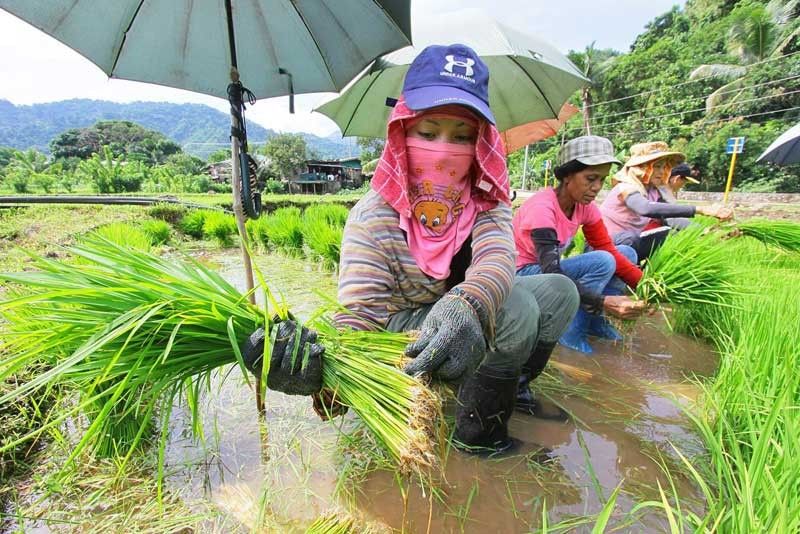Piñol: Papua New Guinea farms could be Philippines' 'food security insurance'

PORT MORESBY— The rice demonstration farm being developed by the Philippines and Papua New Guinea could serve as Manila's "food security insurance" and could help shield Filipino consumers from price shocks, the Agriculture department said.
Last August, the Philippines sent 19 farmers to Papua New Guinea to plant rice and to train local farmers as part of a bilateral agreement on agriculture cooperation.
The planting was done in a 25-hectare demonstration farm inside the Pacific Adventist University outside Port Moresby. The leased facility was intended to become a model seed farm that could become a source of certified rice seeds.
The Filipino farmers may work under Philippine companies, which will invest on irrigation.
While Papua New Guineans would be prioritized during harvest time, Agriculture Secretary Emmanuel Piñol is optimistic that the farm would also contribute to the Philippines' food security efforts. He said anything in excess of Papua New Guinea's initial rice requirement of 400,000 metric tons could become part of the Philippines' rice supply or exported to other island nations.
According to a report in September on the agricultural cooperation between the two countries, Papua New Guinea imports around 98 percent of the nearly 400,000 kilos of rice the country consumes each year.
It is said that only 50,000 hectares of its two million hectares of suitable agricultural lands are required to meet its rice needs.
Philippines could benefit from PNG's 4 million hectares
"Our food security program requires a ten- to 20 year-forward planning and we're looking at Papua New Guinea as our food security insurance. Can you imagine if we're able to develop four million hectares here, that's even bigger than rice area that we have right now," Piñol said in an interview last Sunday here.
"So if our 3.9 million hectares could feed 95 percent of Filipinos right now, you can just imagine what four million hectares in Papua New Guinea would be able to contribute to our food security program," he added.
Piñol said the farm could help the Philippines avert rice supply issues it experienced recently. He noted that rice prices become stable if there is adequate supply of the staple.
"Here (in this plan), we control the rice supply because we are the ones who planted the rice, our farmers and our corporations," the Agriculture chief said.
Anakpawis: Piñol plan an insult to Filipino farmers
Anakpawis party list Rep. Ariel Casilao has criticized Piñol's plan to send farmers to Papua New Guinea, calling it an insult to Filipino farmers.
The lawmaker has said he could not understand why Piñol wanted to send Filipino farmers to the Pacific island country when the Philippines has almost four million hectares of agricultural lands. Casilao has also claimed that planting rice in another country and sending it back to the Philippines would only perpetuate rice importation.
But Piñol is convinced that the cooperation agreement with Papua New Guina is a better set-up for Filipino farmers and consumers. He said farmers from neighboring countries like Vietnam, Cambodia and Thailand are the ones benefiting when the Philippines imports rice. Under the agreement with Papua New Guinea, Filipino farmers are the ones who would supply rice to fellow Filipinos.
"Why don't we allow our farmers to plant the rice and supply rice to the Philippines? They are just planting rice outside the Philippines. Under this program, Filipino farmers and Filipino companies are the ones who will benefit," he said.
"We plant the rice. We produce. Effectively, we control the supply and price."
Piñol said the Philippines could not always rely on traditional exporting countries like Thailand and Vietnam because their population are growing.
"In fact, our last bidding failed because the prices they offered were high and we do not have control over them," he said.
- Latest
- Trending






























